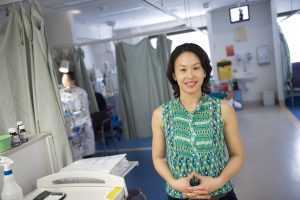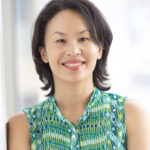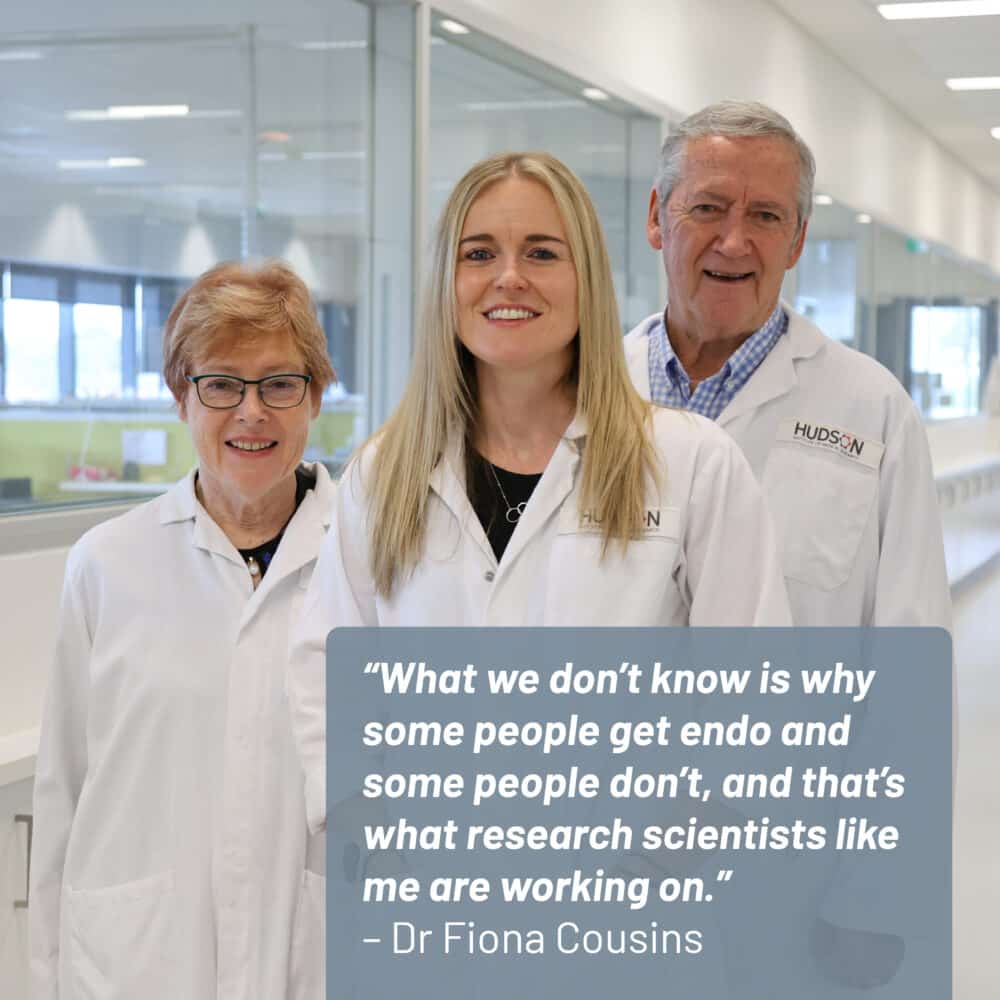Dr Rebecca Lim invited to present work at BIO SPARK, Stanford
By Hudson Institute communications
Dr Rebecca Lim has been invited to present her work with Business Development Director, Rob Merriel on amniotic exosomes at the prestigious Stanford University BIO SPARK Showcase in San Francisco on 17 October.

Dr Lim will make a 15-minute pitch entitled Amniotic Exosome Therapy: A cell-free approach to regenerative medicine for fibrotic diseases.
“Exosome treatment has been found to be highly effective in models of fibrotic diseases affecting the heart, liver and lungs,” said Dr Lim.
This Hudson-Monash collaboration was chosen to be presented at the event, which is attended by pharmaceutical and biotechnology companies large and small, investment companies and start-ups.
Exosomes, a commercial alternative to stem cell therapy
Exosome therapeutics is an emerging field that provides an alternative to stem cell therapy.
Amniotic exosomes are nanosized vesicles released by amnion stem cells, which are derived from the human placenta that is discarded after pregnancy. They contain ‘cargo’ such as proteins and nucleic acid material that are biologically active and reflect the function of their parent cell.
Dr Lim has been leading research into these stem cells and their regenerative potential in lung repair for a decade. She noticed in the lab, incredibly, that the stem cells’ actions were being carried out via their exosomes.
“I didn’t expect that four years later a discovery made in our small five-person team would interest major investors,” Dr Lim said.
Dr Lim believes that exosomes are key to the regenerative mechanisms of amniotic stem cells – a finding that could change the landscape of cell therapy research.
Despite years of tremendous activity and investment in stem cell therapies, issues with cost and consistency of manufacture, storage and transport have prevented their widespread use and benefits.
“Manufacturing stem cells at commercial quantities can be difficult and cost-prohibitive to take to the mass market. We hope to deliver a product that is a fraction of the cost,” said Dr Lim.
“Stem-cell-based therapies are often expensive and require specialised equipment for storage, transport and preparation. In contrast, exosomes have none of these limitations. They can be manufactured at scale at a low cost, freeze-dried, transported, then reconstituted and administered at the bedside in a similar fashion to most medicines,” said Dr Lim.
“A low-cost exosome-based therapy could enable patients all over the world, including those in developing countries, to benefit from regenerative medicine. We hope that our discovery will make regenerative medicine accessible to everyone.”
BIO SPARK showcase
The BIO SPARK event provides an opportunity for researchers to showcase work that is ready for partnering or venture funding. Monash is a global SPARK Stanford affiliate member.
“Hudson Institute is an attractive partner for venture capital as well as pharmaceutical and biotechnology companies. We have world-leading expertise in cell biology and ‘gold standard’ laboratory tools and the resources to take this discovery to the next level,” Mr Merriel said.
Contact us
Hudson Institute communications
t: +61 3 8572 2697
e: communications@hudson.org.au
About Hudson Institute
Hudson Institute’ s research programs deliver in five areas of medical need – inflammation, cancer, reproductive health, newborn health, and hormones and health. More
Hudson News
Get the inside view on discoveries and patient stories
“Thank you Hudson Institute researchers. Your work brings such hope to all women with ovarian cancer knowing that potentially women in the future won't have to go through what we have!”



